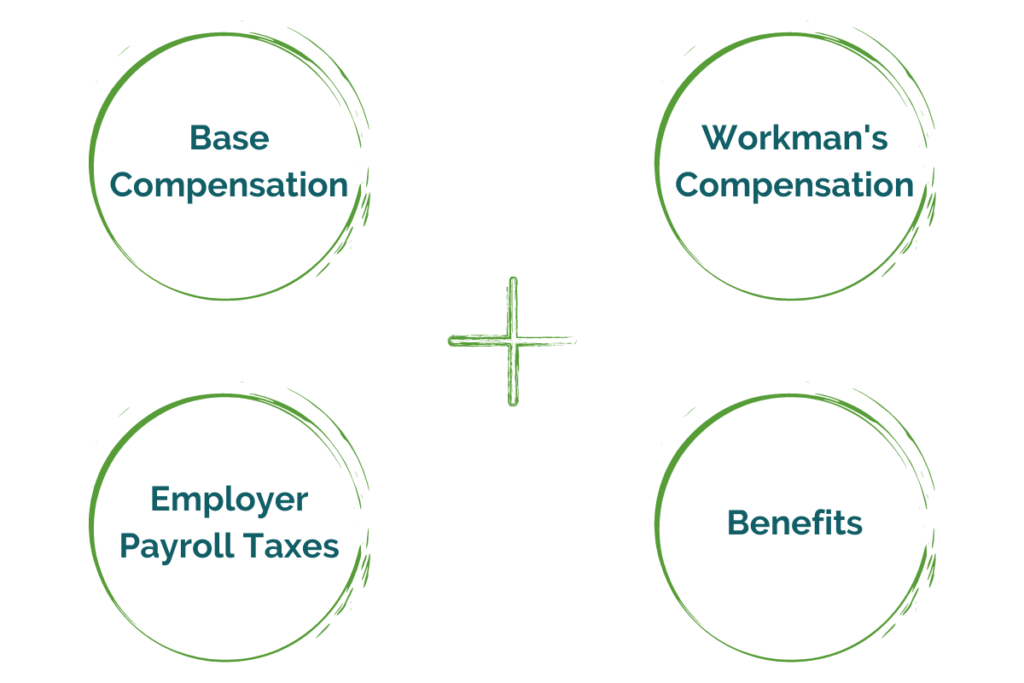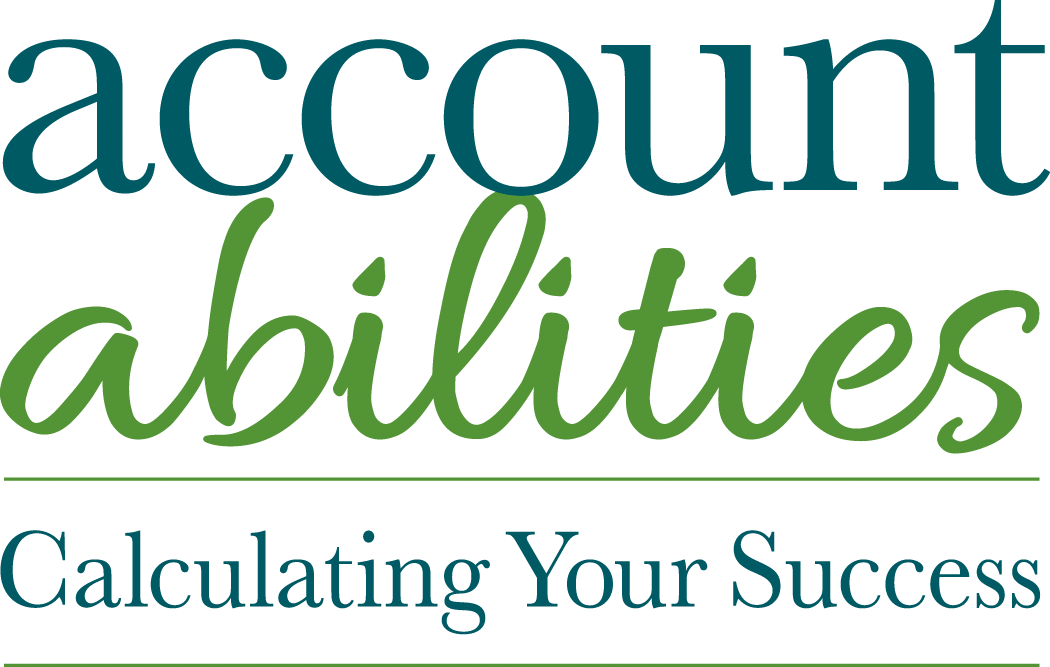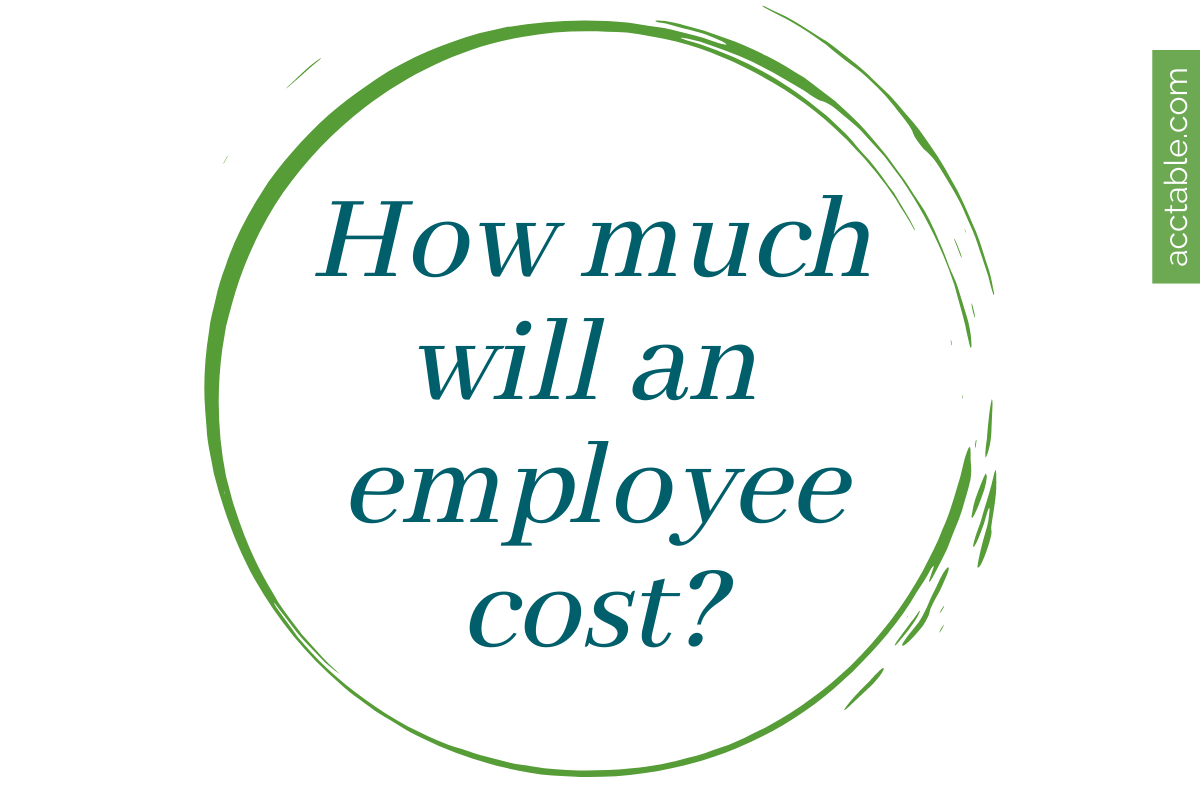Can you afford to hire a new employee to your small business? The work is rolling in and it would be helpful to have additional help, but it’s important to look at the numbers! While calculating how much an employee will cost can be an intense calculation, today we are just going to dip into a general idea of the cost. A quick calculation can let you know if you should dig deeper or if you need to wait a little longer.
First things first, let’s define some terms:
Employer Share of Payroll Taxes – As a rule of thumb, employer payroll taxes are roughly about 8% of gross compensation. As the employer, you are responsible for paying half of the employee’s social security and Medicare which equals about 7.5% plus federal and state unemployment tax. The unemployment tax rate will differ for a variety of reasons, but usually come with an income limit. For example: 3.67% of the first $10,000 of compensation.
Wages/Salary (Base Compensation) – this is the hourly wage or annual salary you plan to pay the employee.
Workers’ Compensation Insurance – Workers’ Compensation Insurance provides employees with benefits if injured on the job. The insurance is required by law if you have employees. There are several factors that will impact your insurance premium, such as industry, job duties, compensation etc. The higher the risk of injury, the larger your premium will be. If you are hiring an administrator, the cost will be significantly less than if you hire a roofer. We suggest calling to get a quote before you hire an employee so that you are prepared for the expense. There is often a large upfront payment due.
Benefits – If you are offering health insurance or retirement, then you will need to add these costs into the equation. Most small business owners do not offer health insurance, but often offer a retirement plan. If you do offer a retirement plan, make sure to calculate the maximum matching contribution so that you are prepared. For example: if you have a SIMPLE retirement plan in place, add 3% of the employee’s compensation to the equation.
Now you need to determine the annual compensation of an employee.
Simply multiply the Hourly Wage x Hours Expected to Work a Week x The Number of Weeks Expected to Work During the Year.
For example:
40 hours a week x 52 weeks = 2080 hours x Hourly Wage=
Base Compensation
To run a quick calculation of how much an employee would cost, add the Wages/Salary (Base Compensation) + Employer Share of Payroll Taxes + Workman’s Comp + Benefits = Total Cost of Employee

Example:
I want to hire an employee working 30 hours a week, with 2 weeks of paid vacation, $51.00 an hour and a SIMPLE retirement.
30 hours a week
X 52 weeks
= 1560 hours
X $51.00 an hour
= $79,560 Compensation
X 8% for payroll taxes – $6364.80
X 3% for SIMPLE – $2386.80
+ workers’ comp – $625 a year
Total Cost of an Employee – $88,936.60
After running this quick calculation, you can look at your numbers to determine if adding an employee is the right choice for your new business. If nothing else, it gives you a goal to work towards!


